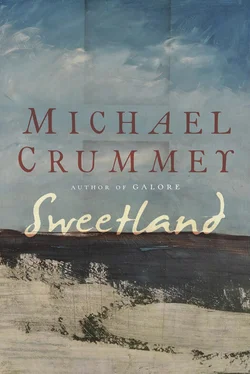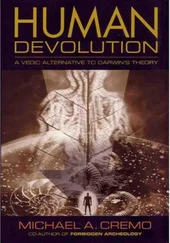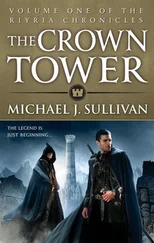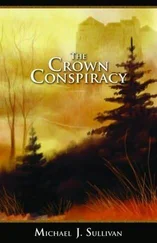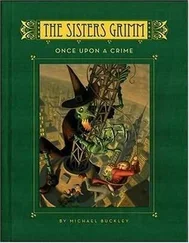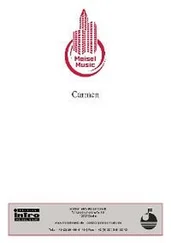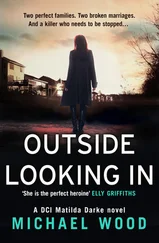Sweetland was poisoned with the whole affair and wished they’d all fuck off home out of it, leave him and the island alone. But everyone wanted to hear his version of events and hunted him down to pose the same half-dozen questions. All of them asking him to spell his name, for accuracy’s sake. Sweetland, he’d say as they bent their heads over their notebooks, S-w-i-e-t-l-u-n-d .
They glanced up and he shrugged. It’s an old Swedish name, he said.
A few reporters settled in for days at a time. A fey gentleman with a southern accent and a limp who claimed to be writing for The New Yorker , though nothing appeared there that Sweetland ever heard of. An old-time drinker with a Toronto magazine who asked to be shown some local colour and spent a night passed out under Sweetland’s kitchen table with his pants around his ankles.
There was a television crew from the CBC who set Sweetland up near the waterside window in his stage. A crowd of youngsters at the open door to watch and they recruited young Hayward Coffin to hold a silver reflector just out of the frame. The interviewer asking Sweetland how he felt, coming upon those lost souls out there in the fog, to find the dead boy in the lifeboat.
How I felt? he said.
Yes, she said. She was Ruthie’s age, or thereabouts. She wore pink slacks and a short white jacket and clownish makeup she retouched whenever the cameraman changed positions or swapped out his battery pack. An air of mainland entitlement about her. She’d come at him with a puff pad before they began and he tried to fend her off. It’s for the glare, she explained as she lowered his arm and had a go at his face with the powder. He took a dislike to her that seemed unaccountably fierce.
How I felt? he asked again.
Her eyes didn’t waver. Were you surprised? she said.
No, he said. No, I had a letter come the week before, asking me to meet them out there.
She smiled and nodded. She turned to the cameraman and he lowered the camera from his shoulder. She leaned toward Sweetland with both elbows on her clipboard. We’re just trying to tell the story here, she said to him, her voice almost a whisper. No one’s trying to embarrass you or make you look foolish.
You’ll want to talk to my sister, he said suddenly, surprising himself. He hadn’t spoken three words to Ruthie since the night he’d caught her sneaking out of the Reverend’s office.
Your sister?
She looked after the one that died, down to the church, he said.
Sweetland was devoted to Ruthie who had lost her father before she had a chance to know the man. He was often first awake in the house when she was a girl, and she came out of her mother’s room to meet him at the top of the stairs, shivering in her nightdress. He carried her down to the kitchen in the dark of winter mornings, sat her on the stove while he laid shavings and kindling into the firebox, feeding the flames for quick heat. Ruthie chatting away to him about the dreams she’d had or some game she’d been playing with the cat or the size of Mrs. Vatcher’s drawers on the line. He’d lift her down once the fire had taken hold and send her into the pantry for plates and cutlery to set the table while he fried a panful of capelin.
Sweetland walked her to the outhouse after dark, watching the stars as he waited for her to do her business. Carried her on his back when they climbed up to the mash to pick berries, Ruthie singing into his ear as payment for the ride.
It was Sweetland who killed the rooster when it went after Ruthie. A creature so vicious you couldn’t turn your back to it, his mother carrying a stick to slap it away when she went out to collect the eggs. The red comb flopping side to side as it strutted around in a military rage. Ruthie skipping innocently across the yard one afternoon and the cock flying up at her, slashing at her clothes and face. Talons sharp as fish hooks. Tore her dress at the shoulder, ripped one earlobe so it hung by a string of flesh.
Sweetland beat the bird to death with a barrel stave while his mother sewed Ruthie’s lobe back on with needle and thread in the kitchen. He was so savage the rooster couldn’t be cleaned to make a meal of it.
That’s a waste of good meat, Uncle Clar said, scraping the ragged mess up with a shovel.
Sweetland was still in a lather. He could hear Ruthie bawling in the kitchen where Hollis was holding her arms while their mother stitched the girl’s lobe in place. He swung at the animal as Uncle Clar walked past him, wanting to kill the dead thing over again. The ring of wood against the shovel making his elbows tingle. He stamped on the ruined corpse where it fell to the ground.
Are thee done? Uncle Clar asked him.
I’m done, Sweetland said. Though he knew he was not, and likely never would be.
That same murderous commotion at work in him now, though he didn’t know who it should be directed toward, the Reverend or Ruthie. That blind fucker, Pilgrim. The fallen world itself.
What’s her name? the reporter asked.
Sweetland looked at her dumbly.
Your sister, she said. What did you say her name was?
Ruthie, he said. Ruth Pilgrim.
I will definitely talk to her, the reporter said. As soon as we’re done here.
And he answered her questions about his feelings then, making a bloody fool of himself from all he could tell.
THE RCMP PATROL BOAT out of Burgeo motored into the cove a week after the fire. The constable came to Sweetland’s house and asked about the smell of gas everyone remarked on and his boat untied and if there was anyone who might be holding a grudge against him or might have a reason to target his property.
“Only everybody,” Sweetland said.
The constable made a useless note in his black notebook, and Sweetland thought for a moment about digging the threatening letters out of the drawer where he kept them. But there hardly seemed a point to it.
“So you have no idea who might be responsible?”
“Could be half a dozen people. A dozen,” he corrected himself.
“Well,” the constable said. “Unless someone comes forward with more information, it isn’t likely we’ll ever know who set the fire.”
“Won’t no one come forward,” Sweetland said. “I wouldn’t tell you myself if I knew.”
The constable cocked his head. “Why is that?”
If you scald your arse, Sweetland’s mother used to say, you got to learn to sit on your blisters. He said, “I got what was coming to me, I expect.”
Sweetland went down to Duke’s shop in the afternoon to look in on the chess game that was going on without him. Pilgrim already sitting there with Duke. The two men had been interviewed by the constable as well and they couldn’t let the topic go, throwing out names of the most likely culprits, speculating on how they might have gone about it, the idiocy of risking every building in Chance Cove.
“It’s lucky you still got the boat anyway,” Pilgrim said.
“Whoever it was,” Duke said, “wanted to make sure you had a way to get the hell out of here, is what I think.”
The chess game looked to be halfways done already. A couple dozen moves made on each side, a third of the black pieces removed from the board. As though time was running out and the players were in a race to finish.
“You still planning on going out for the food fishery?” Pilgrim asked.
Sweetland gave him a look that Pilgrim could sense from across the room.
“Jesse’s been asking,” he said by way of explanation.
“I don’t know if Clara would be too keen on the notion.”
Pilgrim made a motion with his shoulders. “Might be she’s feeling a little more kindly toward you,” he said. “Account of the fire taking your stage.”
Читать дальше
